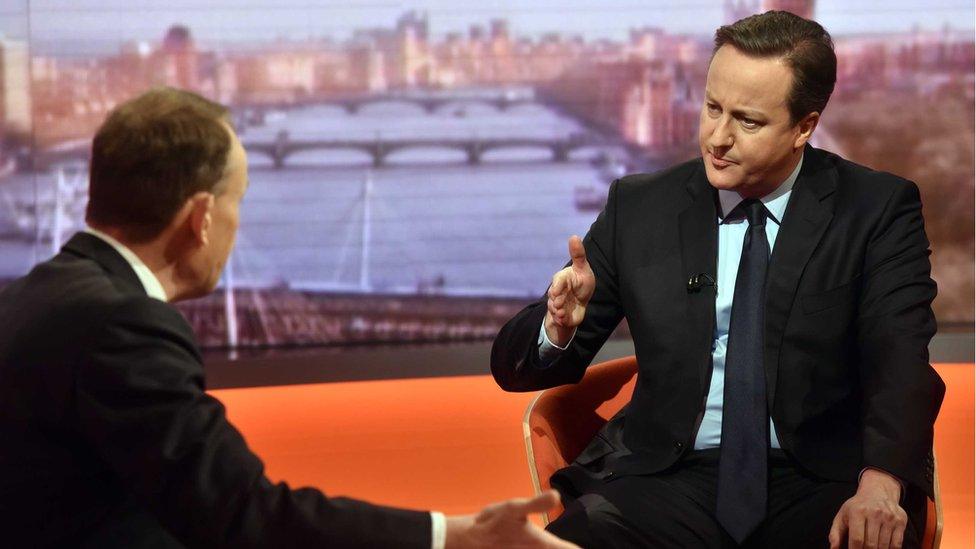Deal on UK-EU renegotiations 'possible' next month
- Published
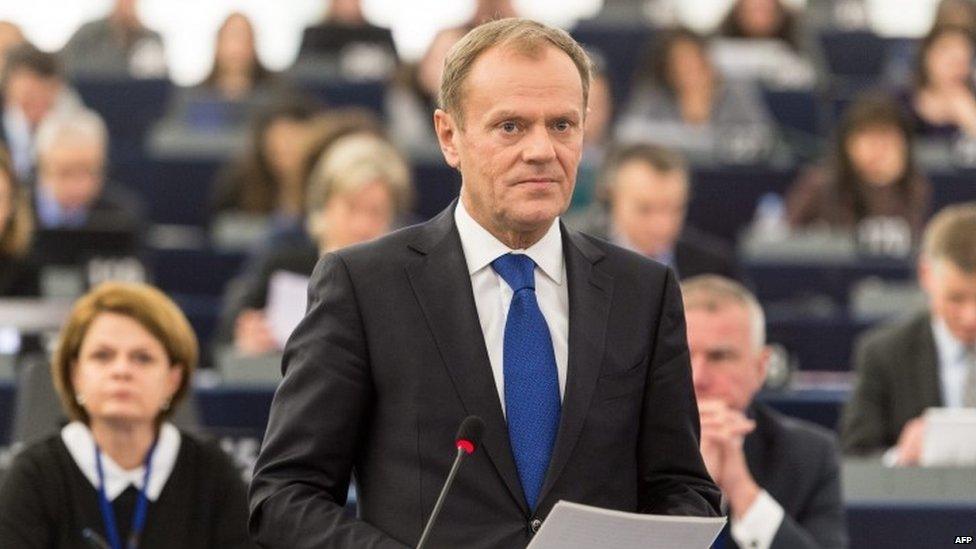
Mr Tusk is a pivotal figure in the discussions
Agreement between the UK and the rest of the EU over David Cameron's reform proposals is possible next month, one of the leading negotiators has said.
Donald Tusk, president of the European Council, said he would table "concrete proposals" for discussion at February's summit of EU leaders in Brussels.
Should a deal be reached, it would open the possibility of a referendum on the UK's membership being held in June.
A poll must be held by the end of 2017, but the PM is thought to favour 2016.
Downing Street responded to Mr Tusk's comments by saying the process would be driven by "substance not schedule".
And a spokesman added: "But a deal in February would pave the way for getting on with this."
Mr Cameron is trying to negotiate a "better deal" for the UK in the European Union as a prelude to holding an in-out referendum on whether the UK should remain a member.
Negotiations are focused on four key areas: economic governance, sovereignty, competitiveness and curbs on EU migration to the UK.
Both sides are insisting progress is being made but that obstacles remain, particularly in relation to the UK's proposal for EU migrants to have to wait four years before being able to claim in-work benefits.
'Looking for compromises'
Holding a referendum in the first half of 2016 - which senior government ministers reportedly favour - effectively hinges on the other 27 EU members agreeing to the UK's proposals next month.
Mr Tusk, the former Polish prime minister who now chairs meetings of the European Council, has raised expectations of an agreement, tweeting, external that he would put forward detailed proposals in the run-up to the summit.
"I will work hard for deal in February, not easy but possible," he wrote. The European Council, he added, had "demonstrated willingness to look for compromises" in all four areas without "compromising fundamental values".
He told a plenary session of the European Parliament that a set of changes allowing the UK to remain in the EU was urgently needed.
"I will do everything in my power to find a satisfactory solution, also for the British side," he told MEPs. "As of today, the result of the referendum is more unpredictable than ever before. Time is of the essence here. And this is why I will work hard to strike a deal in February."
The BBC's Brussels correspondent Ben Wright said months of intensive diplomacy between London, Brussels and EU capitals will come to a head when Mr Tusk circulates draft conclusions to which he hopes every leader will agree. While a deal was expected, he said it was not inevitable.
No 10 would not be drawn on the PM's preferred referendum date after Scottish Secretary David Mundell suggested there was no obstacle to it being held in June - a stance opposed by the SNP because of its proximity to May's elections to the Scottish Parliament.
Speaking on Tuesday, UKIP leader Nigel Farage predicted a weak compromise on the issue of migrant benefits. Citing the sexual assaults on German women in Cologne on New Year's Eve, he claimed the issue of border control and the safety of British women would be central to the referendum.

David Cameron's four main aims for renegotiation
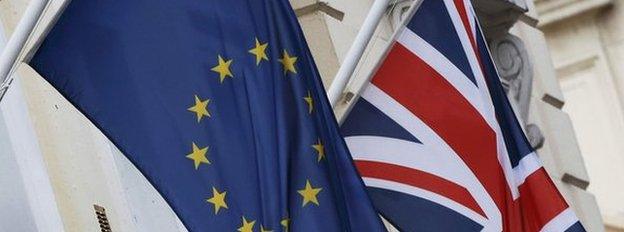
Economic governance: Securing an explicit recognition that the euro is not the only currency of the European Union, to ensure countries outside the eurozone are not disadvantaged. The UK wants safeguards that it will not have to contribute to eurozone bailouts
Competitiveness: Setting a target for the reduction of the "burden" of excessive regulation and extending the single market
Immigration: Restricting access to in-work and out-of-work benefits to EU migrants. Specifically, ministers want to stop those coming to the UK from claiming certain benefits until they have been resident for four years
Sovereignty: Allowing Britain to opt out from further political integration. Giving greater powers to national parliaments to block EU legislation
Referendum timeline: What will happen when?
Guide: All you need to know about the referendum
Q&A: What does Britain want from Europe?
Analysis: Cameron tries to avert slanging match
- Published17 February 2016
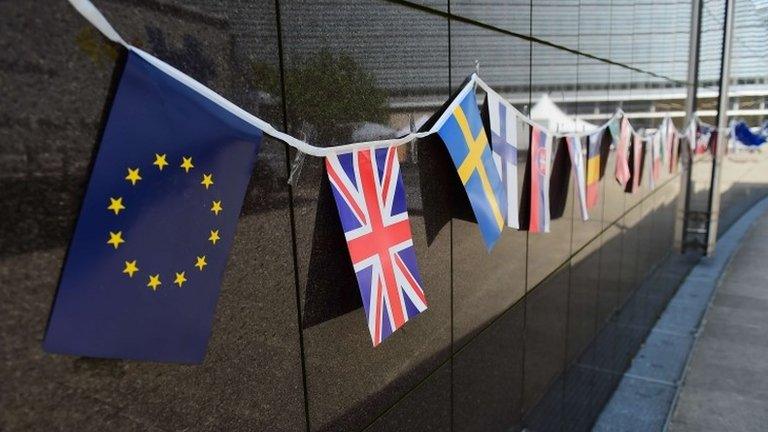
- Published20 February 2016
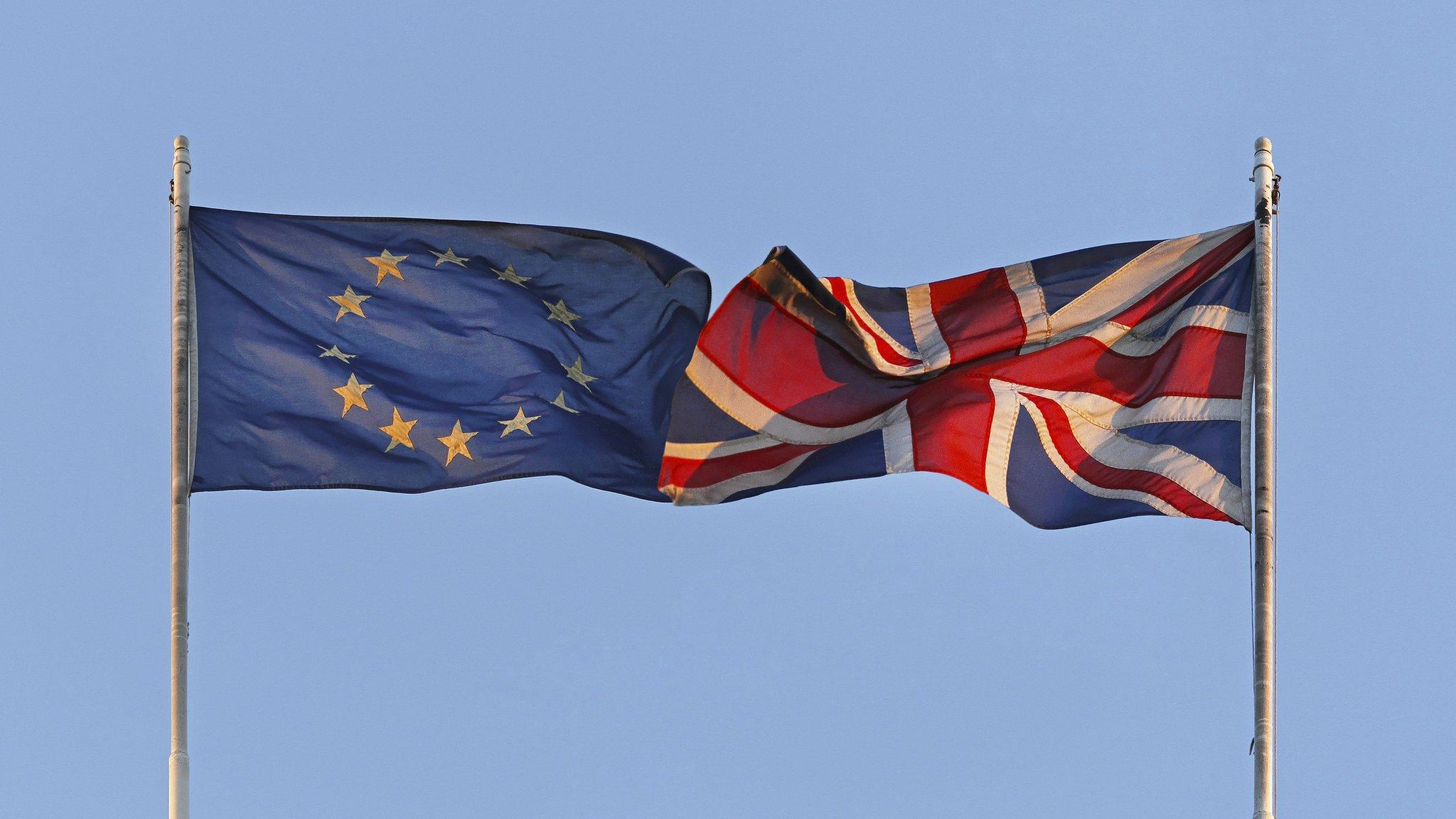
- Published14 January 2016
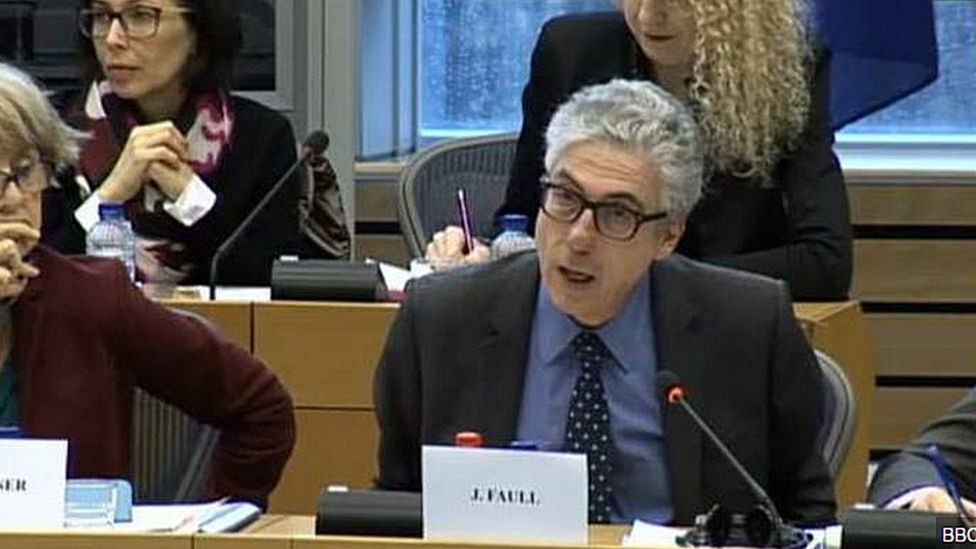
- Published10 January 2016
